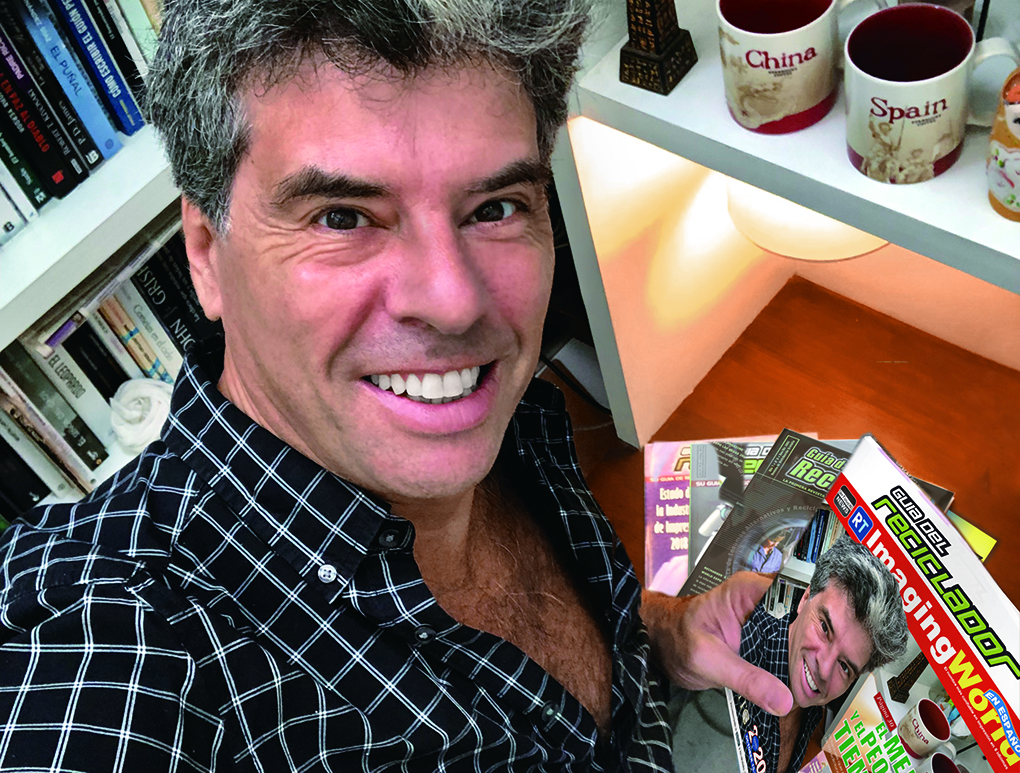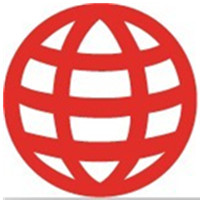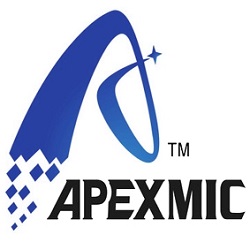What Has Your Association Really Done for You?

What Has Your Association Really Done for You?
I-ITC’s Tricia Judge—a voice for the Aftermarket
————————————————————————————————————————————————————————————
Bill Clinton was running for reelection for president of the USA. The Summer Olympics were underway in Atlanta. The Dow was hovering around 6000, and the World Trade Towers still stood in southern Manhattan.
It was 1996.The burgeoning cartridge remanufacturing industry came together at the first World Expo. It was young, but strong enough to know it was a target for extinction by the OEMs. Only six months later, a real threat to the industry presented itself, and the industry was poised to respond. And respond, it did!
Lexmark’s Prebate program was introduced in May, 1997, and became a serious threat to the future of the aftermarket. The program tied the customer’s reduced-price purchase (called the “prebate”) of the cartridge to a promise to return the cartridge to Lexmark or throw it away. The industry saw that a successful prebate program would lead HP and others OEMs to initiate similar programs.
The industry, newly-galvanized, responded by launching an unprecedented grassroots effort. Associations were funded, lobbyists were hired, anti-prebate laws were drafted and introduced at all levels of government. “Within weeks, we were lobbying in so many states that we couldn’t keep every effort straight,” Judge said. “We created a ‘war room’ and tracked proposed legislation. It was an anxious but amazing time.”
As a result, several states and other government entities were compelled to buy unfettered new or, better still, remanufactured cartridges. Suddenly, a new problem arose. Many of these government consumers had a bad taste from former remanufactured (or refilled) cartridge purchases. Their bid procedures had only price as a requirement, and lowest-cost remanufactured cartridges were often not the best-performing cartridges.
“We won the battles in the state houses, and in the court of public opinion, but we were losing the war,” Judge said. “It was time to prove our mettle.”
Dr. Jon Wyhof and Lester Cornelius were tasked with finding a way to prove that cartridges could be tested and proven to meet (and maybe exceed) the OEM stated performance for its cartridges. The Standardized Test Methods Committee (STMC) was formed in 1998 at a meeting at the Rochester Institute of Technology. which continues to promote and test for the remanufacturing cartridge industry.
The STMC guide is used by cartridge remanufacturers and manufacturers around the globe to prove the quality (page yield, image density and background properties) of their cartridges.
By 2001, the various regional associations, national and international trade groups in the industry and the STMC members came together and decided to join forces. They tasked Tricia Judge, former Executive Editor of Recharger Magazine and an attorney, with setting up and running the International Imaging Technology Council (Int’l ITC).
“By 2002, each regional association in the US voted unanimously to become a chapter of the Int’l ITC,” recalled Judge. “The Canadian Imaging Products Remanufacturing Association also voted to become ITC-Canada, a chapter of Int’l ITC … and we also entered into formal or informal partnerships with associations in the UK, Europe, Japan, Australia, Mexico and South America. So we became international indeed.”
Grassroots to Government
The cartridge remanufacturing industry is a mature, global industry. There are approximately 1,200 remanufacturers in North America and an estimated 10,000 worldwide. Private industry and government entities also look for help with advice about OEMs and the Aftermarket. For the many who need such support, the not-for-profit Int’l ITC’s stated four-point mission is to:
• Defend the industry from OEM and other attacks
• Educate consumers, media and government as to the benefits of remanufactured products
• Educate its members to best practices (like STMC)
• Provide member benefits to enhance business
Much like the industry, the Int’l ITC is small, but mighty. It’s the industry’s number one advocate all the way from grassroots to government.
The association knows about every lawsuit that involves or affects the aftermarket and often provides advice. It also battles against illegal counterfeit and patent infringing, new-built cartridges.
“The Int’l ITC really helped us when we thought one of our customers might have gotten a counterfeit cartridge,” said Michele McHenry, co-owner of Laser Lab Inc. based in Ephrata, Pa., an Int’l ITC member. “Knowing that I have someone that is advocating for me and can help me is reassuring.”
Going in to Bat for the Industry
In its twenty years the Int’l ITC has presented issues about the industry to all levels of government, academia and consumer organizations. It has facilitated the passage and monitored enforcement of legislation favoring the purchase of remanufactured cartridges. It has filed five briefs filed with the U. S. Supreme Court and Federal Circuit Court of Appeals, worked on definitions for federal procurement guidelines, and helped members secure, government contracts at the federal, state and local level.
Some highlights include:
• defeating Lexmark’s and HP’s attempts to regain major cartridge contracts in Canada and the United States by exposing their inaccurate studies and performance reports;
• fighting against the global electronics retailer, Radio Shack to remove all signage falsely claiming use of aftermarket cartridges voids printer warranties;
• creating an online consumer website (www.ConsumerChoice.info) to combat myths and lies, and to funnel business to members;
• introducing the industry and its issues to the legal system through the filing of amicus briefs in the US Supreme Court (ITW v. Independent Ink, and Quanta Computer v. LG Electronics);
• partnering with an educational organization to educate children about environmentally-conscious products and purchasing, hoping that they will influence their parents’ purchases and, when the time comes, for them to make environmentally-sound purchases of their own, such as buying remanufactured products;
• facilitating the passing of EPEAT (Electronic Product Environmental Assessment Tool), a system that helps consumers evaluate, compare and select electronic products based on their environmental attributes. Judge, along with representatives from UKCRA (United Kingdom Cartridge Recyclers Association) and ETIRA (European Toner and Inkjet Remanufacturers Association), are giving a voice to remanufacturers and “promoting the environmental benefit of remanufactured products.”
• testifying at hearings held by the U.S. International Trade Commission to expose the problems of Chinese, newly made cartridges that most likely violate OEM patents and unfairly compete with new and remanufactured cartridges;
• addressing the issue of quality standards by administering the STMC certification to companies who, through standardized testing, prove that their cartridges perform as well as the originals. On the flip side, the Int’l ITC polices the industry for the misuse of the STMC logo, and works with the OEMs and the Imaging Supplies Coalition to investigate and expose cartridge counterfeiters.
Drive with a Passion
For 11 years, after graduating from law at Loyola University, Judge managed a private law practice that specialized in small business issues. Judge didn’t know the difference between a hopper and a drum. She started working for Recharger Magazine—eventually becoming its executive editor—and devoted 5 years of her life getting to know the industry—the products, companies, people and issues. Judge’s passion grew for the remanufacturing industry and its core benefits: consumer choice, locally made, and good for the environment.
It was her drive coupled with her law background that made Judge the perfect candidate to lead the Int’l ITC.
Judge has been supported by a group of industry leaders, chief among them being the late Ed Swartz (founder of Static Control), and the late Lester Cornelius (founder of Optical Technologies Corp). Both loaned money and directed the activities of the Int’l ITC, as did Lionel Brown (Future Graphics and MKIC), Yvon Leveille (Tecknolaser) and Peter DeSalay (PTI Imaging Products). Judge also personally invested money, as did two Chinese companies, Multi Union and Wing Han, to assist with the startup of the association.
In recent years Static Control and American Laser Products, of Middleton, Wisconsin, have given generously each month. “The importance of coming together to speak with one voice cannot be underestimated,” said Static Control’s President Bill Swartz. “That’s why Static Control has always supported the Int’l ITC and its important work. No matter whether you are the biggest company or a smaller one, you are important to the whole industry.”
The Int’l ITC’s Board of Directors, comprised of national and regional remanufacturers, dealers and suppliers, provides guidance to Judge on Int’l ITC programs, including STMC and advocacy.
What’s Next?
After successfully representing the aftermarket’s position in the courts against abusive patent holders like Lexmark and Canon, a new threat has emerged as an international treaty (the transpacific partnership or TPP) suggests that court-confirmed protections for aftermarkets be removed in favor of strong patent rights. In an already-epic political year, the TPP is a hot issue. The Int’l ITC is working to expose the unintended consequences of this treaty to the attention of the US government.
The United States is the largest remanufacturer in the world. Between 2009 and 2011, the value of U.S. remanufactured production grew by 15 percent to at least $43.0 billion, supporting 180,000 full-time U.S. jobs. The Department of Energy recognizes it as a growth industry and has secured funding for the creation of an Institute for Reducing Embodied-energy And Decreasing Emissions (“REMADE”) in materials manufacturing. Remanufacturing industries will play a large role in directing the projects that would be created—and funded—by the Institute. The Int’l ITC will continue to represent the aftermarket’s position.
For 20 years, Judge has written hundreds of articles that have appeared in industry publications, ASTM News and legal journals, such as the Nevada Bar magazine. She also has released information to the general public about remanufactured cartridges and the issues surrounding them. From interviews with National Public Radio to Reader’s Digest, she’s given the cartridge remanufacturing industry a voice.
“It is my intent to see that the industry has another twenty years of prosperity,” Judge said. “And to have the Int’l ITC there to support it as well.”
Contact the Int’l ITC at +1-702-838-4279 or visit www.i-itc.org.
(Source: Edition 78, Recycling Times Magazine (English))
You’re Welcome to Contact Us!
You can provide opinions and comments on this story!
Or you can send us your own story!
Please contact us, via editor@RTMWorld.com






Leave a Comment
Want to join the discussion?Feel free to contribute!